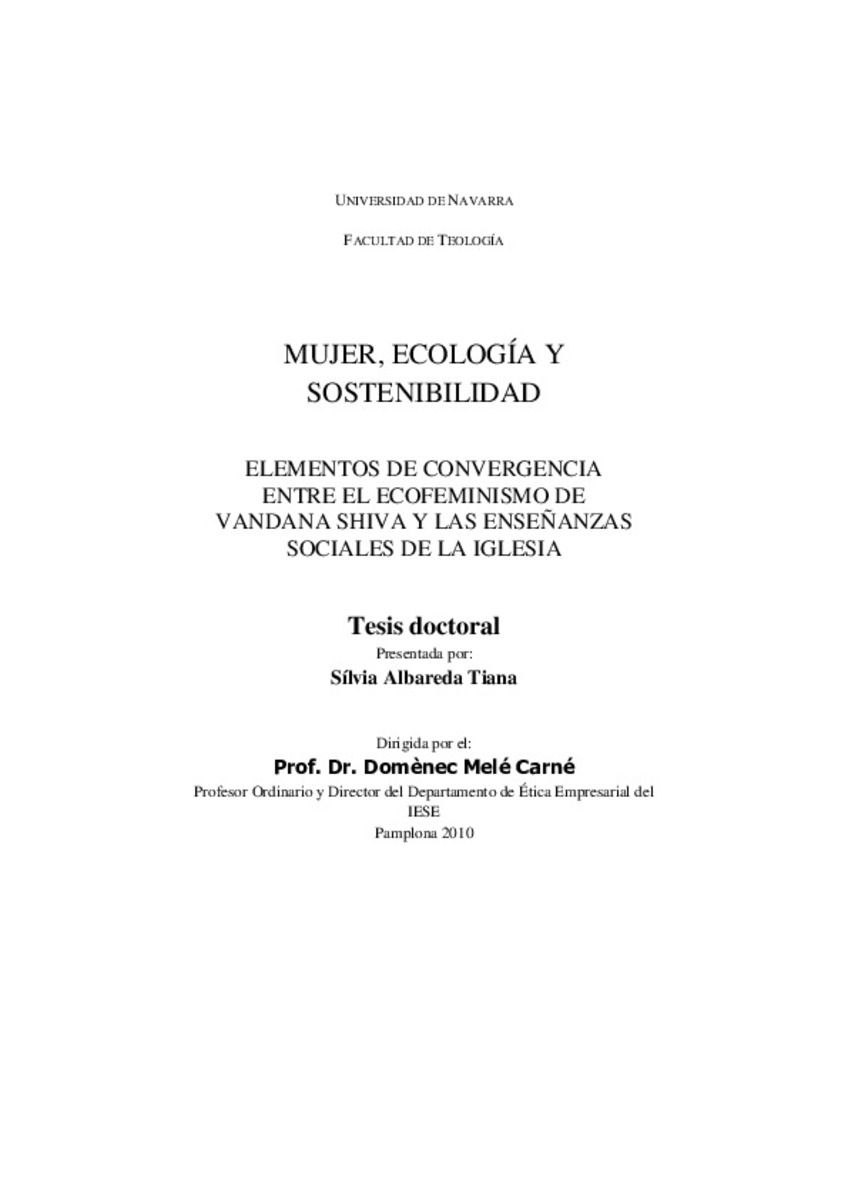Mujer, ecología y sostenibilidad. Elementos de convergencia entre el ecofeminismo de Vandana Shiva y las enseñanzas sociales de la Iglesia
Files in This Item:
Statistics and impact
Items in Dadun are protected by copyright, with all rights reserved, unless otherwise indicated.









